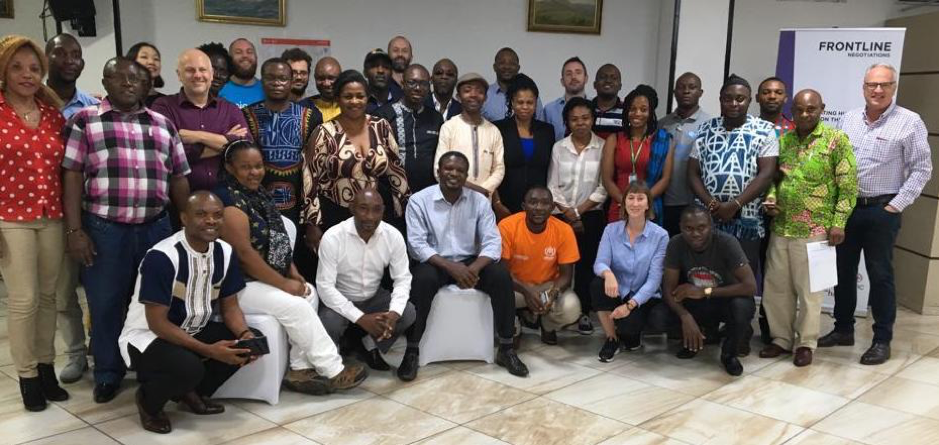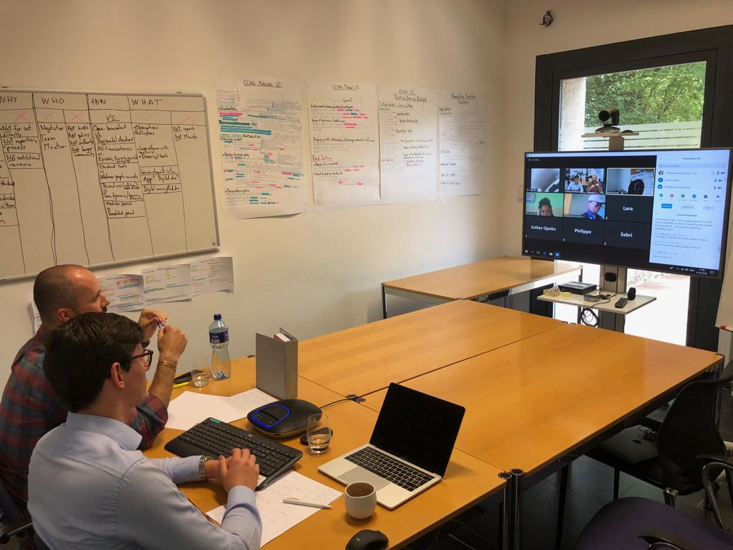
Peer Workshop participants and facilitators in Douala, Cameroon. The live session allowed the CCHN to learn more about how participants apply CCHN tools in their daily work after the workshop. (Photo Credit: Will Harper/CCHN)
The Centre of Competence on Humanitarian Negotiation (CCHN) is continuously looking for new ways to engage members of its global community of frontline negotiators. Following the Peer Workshop in Douala, Cameroon it hosted a live session to reconnect with participants and learn more about how they apply the CCHN tools in their daily work.
The Peer Workshop in Douala, Cameroon was held from 29 June – 2 July 2019 in collaboration with the World Food Programme (WFP). After the event, participants stayed connected and shared negotiation experiences on CCHN Connect, a community-powered forum on humanitarian negotiation.
To deepen these exchanges, the CCHN invited all participants to join a live session on 31 July 2019. The session aimed to find out which CCHN tools had been most useful in their daily work, which of them needed further clarification and what other support CCHN could provide to help negotiations.
CCHN tools and methods at the fingertips
More than a dozen participants from Cameroon participated and were joined by workshop facilitators, including Peter Scott-Bowden and Lara Atanasijevic from WFP.
Many participants were keen to share stories of how they apply CCHN tools in their daily work. Sabri Sabouni, Emergency Specialist at UNICEF said: “I think all of the tools are very useful. But the most useful one for me was the Negotiation Iceberg… You have to do this in your mind before starting the discussion… You have to consider the position of your counterpart, the tactical interest, the norms, the values.”
Esther Opoka, an IRC Field Coordinator in Cameroon added: “[The CCHN Field Manual] is useful when I sit down and go through the tools with my team to build access strategies.”

(From left) Will Harper and Andreas Kaufmann moderated the discussion. (Photo Credit: Agusmia Putri Haerani/CCHN)
Listening to the community
The facilitators also appreciated constructive feedback and listened carefully to suggestions on how to make the CCHN tools more user-friendly. For example, some participants suggested that the CCHN create a ‘light version’ of the CCHN Field Manual on Humanitarian Negotiation which they could easily carry with them during field missions.
Will Harper, CCHN Negotiation Specialist for Africa who led the Peer Workshop in Cameroon and the live session concluded: “It’s great to hear how participants are using the tools and to see the impact of our work… It’s all about helping people prepare, supporting colleagues, and planning ahead.”
